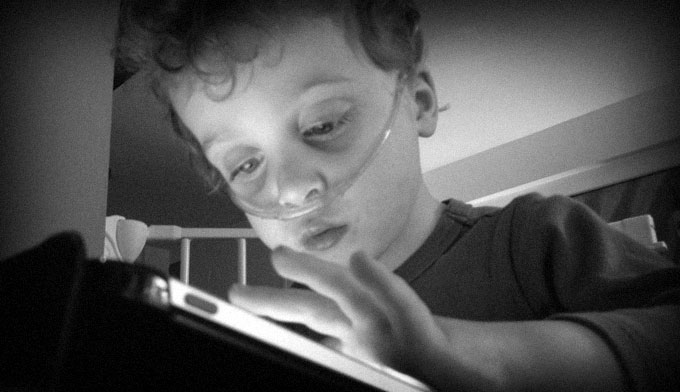 C's biggest obsession is letters and numbers: he sees them everywhere, and even though he just turned 3, he's already starting to spell words. (Some people have suggested he might have hyperlexia; I'm not convinced, though his interest and abilities are certainly unusual.)
C's biggest obsession is letters and numbers: he sees them everywhere, and even though he just turned 3, he's already starting to spell words. (Some people have suggested he might have hyperlexia; I'm not convinced, though his interest and abilities are certainly unusual.)
I should clarify: it's not so much spelling as it is repeating what we've told him. When he becomes fascinated by the letters in a specific word, such as the EXIT sign on our floor, we tell him what the word is. Now he spells it out ("E-X-I-T"), then proudly proclaims, "Exit!"
On the other hand, he is actually beginning to sound words out on his own, as when he recently read "C-U-X" (on an electrical box) and then said, "C-U-X...sounds like saxophone!"
Because he's not stimming out on letters, numbers, and words, we're encouraging this interest. When he became interested in trains, he would get so intense and obsessive that he would completely lose focus and ultimately have a monumental meltdown; we ultimately had to reduce the amount of interactions he had with train-related items.

I recently found a great iPad app called "Write My Name" that C loves. As the title suggests, he gets to write his name, as well as his brother's name; he also spells out other words, and traces every letter of the alphabet.
The app requires him to point and drag around the letter forms, which is a fine motor skill many ASD kids struggle with. While C can definitely lose himself in the game for extended periods of time, he doesn't disappear, and he doesn't become obsessive. It seems to offer just the right amount of stimulation.
I realize there are some experts who believe mechanical and, in specific, app-based tools are a no-no; the argument is that they reinforce self-stimulatory interactions with objects instead of actual interactions with people. I haven't found that to be the case. In fact, the best apps seem to build C's confidence, give him a larger understanding of his world, and they're helping to hone his cognitive and motor skills. Some of these apps actually focus on social interactions as well, but in a way that is less threatening than a direct interaction. It's as though they're beginning to build the bridge.
Much is being made of apps as a cure-all or miracle for the treatment of ASD. I don't know if that's the case. What I do know is that C enjoys the apps, and seems to be benefiting as well. For that, I'm grateful.
